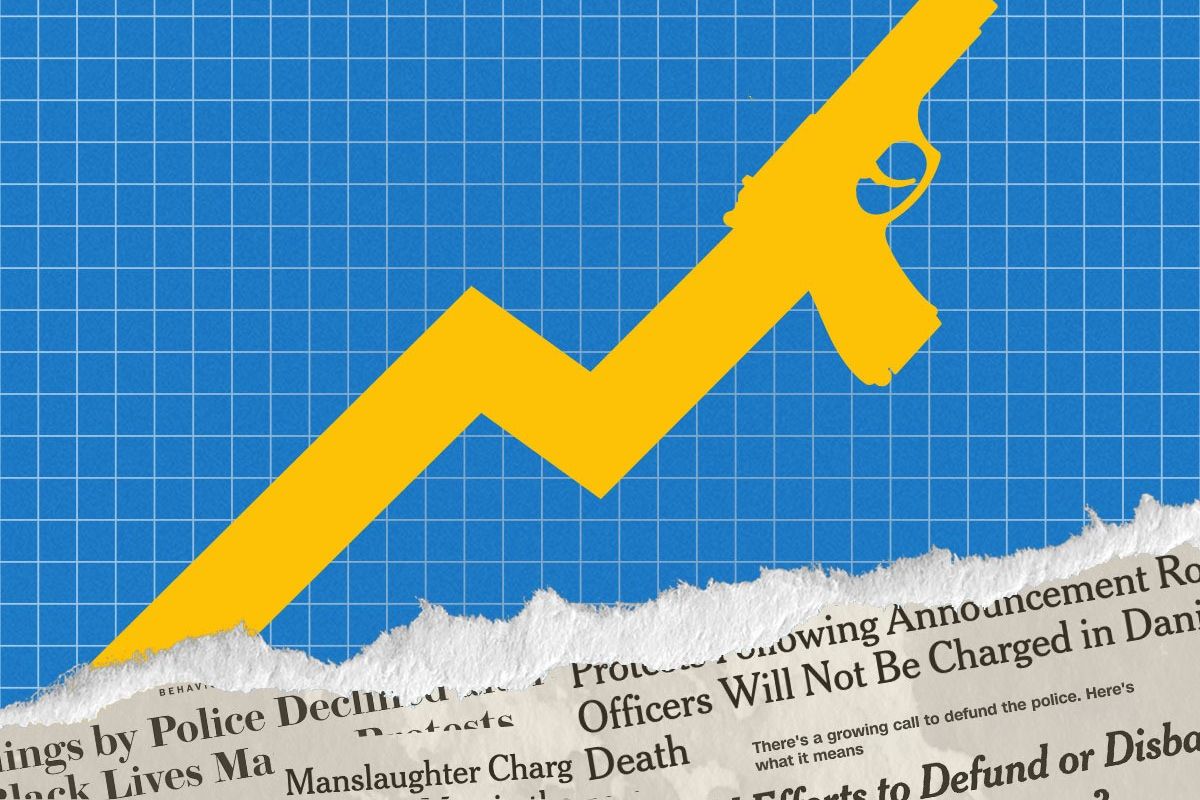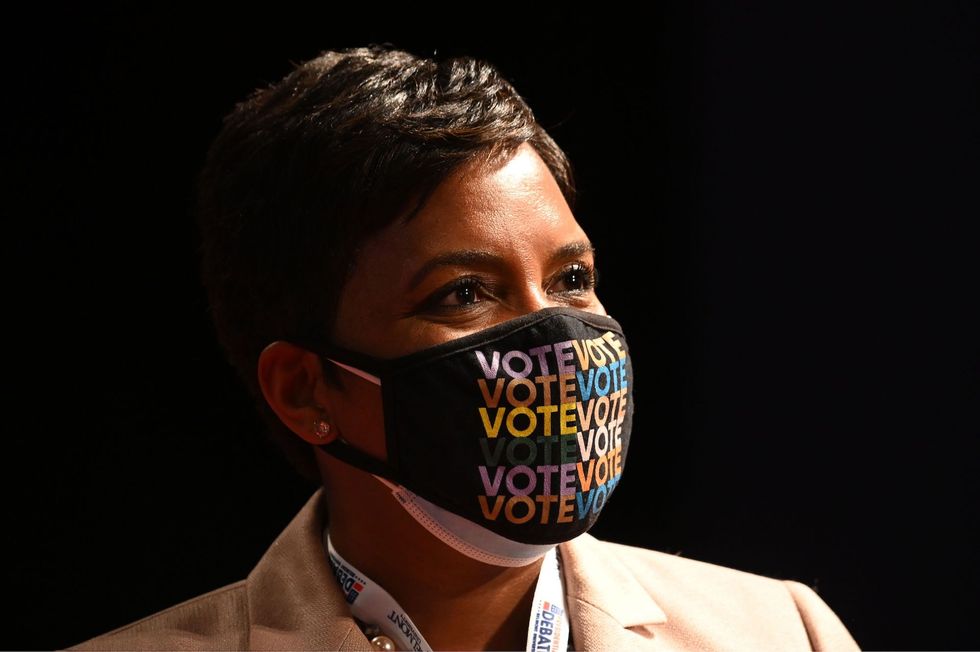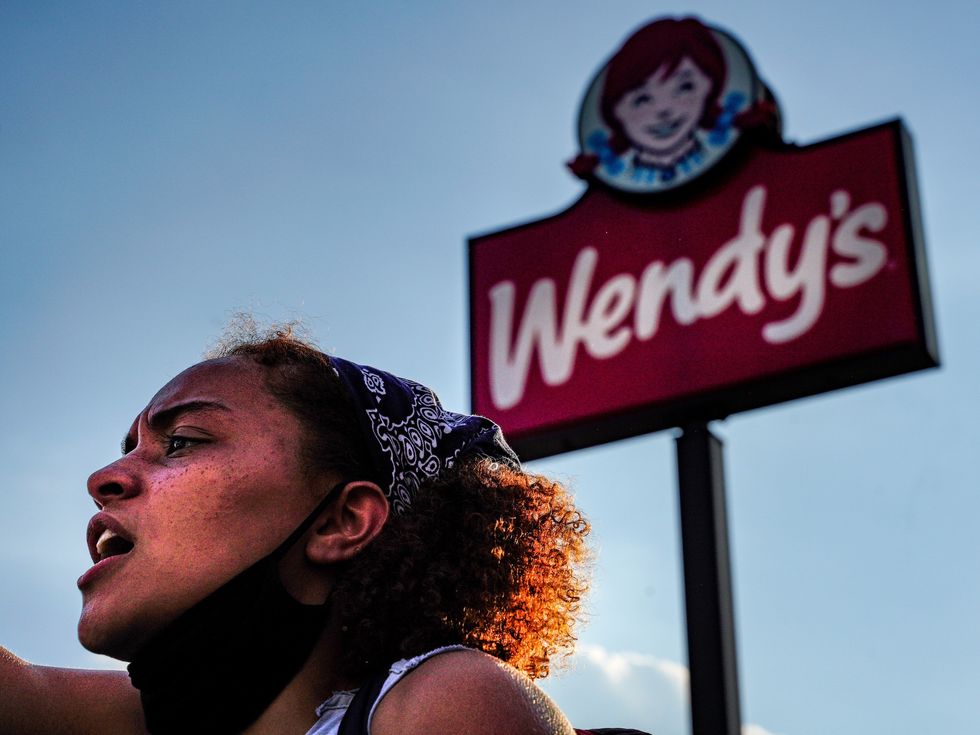
Atlanta homicides chart
Atlanta, like many other cities throughout the country, is currently grappling with a high homicide rate amid ongoing discussions about policing and criminal justice reform. Graphic: Okayplayer
To continue reading
Create a free account or sign in to unlock more free articles.
By continuing, you agree to the Terms of Service and acknowledge our Privacy Policy
Register
The content is free, but you must be subscribed to Okayplayer to continue reading.
THANK YOU FOR SUBSCRIBING
Join our newsletter family to stay tapped into the latest in Hip Hop culture!
Login
To continue reading login to your account.
Forgot your password?
Please enter the email address you use for your account so we can send you a link to reset your password:

In 2020, Atlanta had its highest number of homicides in more than two decades. According to theAtlanta Journal-Constitution, the Atlanta Police Department investigated 157 homicides last year in comparison to 99 in 2019. Atlanta, like many other cities throughout the country — including St. Louis, Kansas City, Milwaukee, Chicago, and Los Angeles — is currently grappling with a high homicide rate amid ongoing discussions about policing and criminal justice reform.
David Kennedy, a professor at John Jay College of Criminal Justice in New York City, said the rise in homicide and gun violence in 2020 is “really distinctive” in comparison to what we’ve seen in previous years. The professor said homicide rates peaked nationally in the early 1990s and, outside of temporary deviations, the country has mostly seen a reduction in homicides since then.
“Twenty-twenty was not only different, it was really different. Homicide, gun violence, and serious crime in the United States, especially what people sort of broadly call community violence, has been in dramatic decline over 20 years,” Kennedy said. Kennedy also makes the point that there’s a lack of national aggregate crime data that can be analyzed quickly, but publications such asNPR have reported cities throughout the U.S. have experienced spikes.
Perhaps, unsurprisingly, politicians, organizers, and crime experts remain at odds about the best solution. In 2020, cries for defunding the police reached mainstream audiences and became a major debate amongst politicians. While experts such as Kennedy say “tough on crime” policies rarely work, they also say rising homicide rates aren’t a matter of needing more (or less) police, citing, again, the fact that most violent crime is extremely concentrated among small groups of people. Still, as media reports of homicides continue, public discussions of how to reduce rates remain top of mind ahead of Atlanta’s forthcoming mayoral election.
Being “tough on crime”
This year alone, Atlanta city officials have made moves that they hope will decrease violent crime, as well as unnecessary interactions between police and residents. In January, Atlanta City Council announced plans to study the potential creation of a “Department of Public Safety and Wellness.” Council member Antonio Brown, who is the lead on the measure, said the department would, among other things, create a new division for non-emergency response.

Still, Brown noted that this won’t have any immediate impact; the study itself will take about 120 days. In the meantime, he said it's up to Mayor Keisha Bottoms to address Atlanta's homicide rates. “She’s going to have to take a hard position on crime and that means she’s going to have to take certain steps in helping to reduce the crime,” he said. Brown said he believes local officials are currently making statements that align with their own “political agendas” instead of the city’s best interest. “You can only balance politics and reactionary leadership for so long before you’re in a position where you actually have to take a position,” he said.
Kennedy agreed that addressing structural causes of crime likely won’t have an impact for years to come, but he said “crackdowns” don’t work either.
“The tough on crime [practices] invariably sweeps up large numbers of mostly people of color and does tremendous damage to them, their families and their communities,” Kennedy said. “Entire demographics and communities get swept into the system while the violence is being driven by extremely small numbers of people.”
A 2019 Bloomberg CityLab article delved into research that suggested an extremely small percentage of a city’s population is actually involved in shooting and homicides. With this in mind, Kennedy believes city officials should be focused on outreach or “customized attention to these groups and group dynamics.”
Even in Atlanta, where city officials have suggested that violent crime is expanding into areas such as Buckhead — where Lenox Mall saw numerous shootings in 2020 — Kennedy said it’s likely still a very small group of people involved. “I would predict that if you go to the authorities and [ask] who is behind the shootings at the mall, it will be something like two or three groups with about 40 people altogether,” he said.
The Atlanta Police Department did not agree to an interview for this story, but provided a statement that said its “enforcement trajectory has been steadily increasing. While we know many of these crimes are not random and involve parties known to one another, it is still alarming our communities and it is something we will not tolerate.”
University of Georgia professor and former defense attorney Russell C. Gabriel believes it’s important to remember that the state is already pretty tough on crime in comparison to other places when having these discussions about what can be done to reduce violent crime in Atlanta.
“When it comes to more serious crimes, we are still on the very high end of incarceration across the country. That actually puts us at the high end around the world,” Gabriel said. “There’s been a little bit of reduction in sentencing possibilities for serious crime as a part of criminal law movements over the past several years, but not much.”
As an example of this, Gabriel pointed to, is Gov. Brian Kemp’s work to pass House Bill 994 last year. The original bill would have increased the number of crimes for which juveniles could be charged as adults, and increase the number of crimes eligible for the death penalty. During a press conference for this version of the bill, Kemp stood next to the family of an 11-year-old who was fatally shot while in bed. In that case, the defendant received two life sentences plus 675 years, but was ineligible for the death penalty.
Even as the country has grappled with the negative impacts of “broken windows policing,” Gabriel said the rhetoric surrounding crime remains hard to dismantle. Officials can easily imply that the opposite of a politician being “tough on crime” is being soft on crime, which would make them an easy target during a campaign.
Atlanta's upcoming mayoral election
With an upcoming November mayoral election in Atlanta, these debates will likely continue to play out publicly, and they could play a role in who wins the election.
Mere weeks after the senate runoff elections, Atlanta City Council President Felicia Moore officially announced her campaign for mayor. Running on the slogan “Atlanta Deserves Moore,” she will challenge Democratic incumbent Mayor Bottoms. Moore, also a Democrat, didn’t immediately respond to a request for comment for this story, but based on her public statements, addressing violent crime throughout the city seems to be a top priority.
Felicia Moore didn’t mention Mayor Bottoms by name when sheannounced her campaign, but said she is campaigning against “crime that is out of control in every neighborhood of our city.” In an interview withCBS46, Moore expressed a desire to respond to the rise in violent crime by strengthening APD, not by “defunding” it. The mayoral candidate also hinted at reports that APD officers were quitting in high numbers last year as a result of feeling unsupported and unappreciated. “Right now, the thing we need are more boots on the ground. We have lost somewhere I think around 400 officers and I’m going to come out with a proposal on how we can get more police presence,” she said.

The Atlanta City Council has publicly criticized Bottoms for her handling of violent crime, and reports have suggested tension between the mayor and APD following the unrest of 2020. In June, Rayshard Brooks was killed by Atlanta police during an altercation at a Wendys. Atlanta’s police chief, Erika Shields, resigned hours later. (Shieldswill now run the police department in Louisville, where residents and city officials are still grappling with the death of Breonna Taylor and subsequent unrest.) Less than two weeks prior to Brooks’ death, live coverage of protests in downtown Atlanta captured two teenagers being pulled out of their car and tased by police. Six officers werecharged with crimes related to the incident.
As Bottoms gained increased national attention and vowed for a “top down review” of policing, several police officers resigned amid reports of low morale.
"There have been these questions about whether or not I support our officers. I continue to support our officers. I've never stopped supporting our officers. I appreciate the job that they do,” she told11 Alive last July.
In recent months, she has introduced new initiatives including “expanding enforcement of nuisance properties, increasing targeted enforcement on gangs and gun violence, continuing focus on disrupting street racing and improving police recruiting and retention,” according to theAJC.
Discussions about crime to intensify
On Wednesday, March 31, Bottoms gave her annual State of the City address. During her address, she committed to adding 250 new police officers to address what she called a "Covid crime wave." She also said Atlanta will invest $3 million in surveillance cameras and license plate tag readers across the city. Mayor Bottoms did not respond to a request for comment for this story.
There’s still time for others to join the mayoral race before qualifying ends on August 20. Regardless, the election is already shaping up to be tense and, if homicides rates continue as they have, crime will likely remain at the center of the race.
“If you look at the platforms and the statements made by people who have announced that they will seek office again, crime is centered in their narrative,” Southern Center for Human Rights lawyer Tiffany Williams Roberts said.
Regardless, UGA political science professor Charles Bullock said discussions about crime in Atlanta will likely get more intense as the mayoral race in November draws closer. And, he said, since the current two candidates are both Black women, it might not be as easy to identify dog whistles during this election. In contrast, he referred to the 1973 mayoral election between Sam Massell, who was sometimes referred to as the “Mayor of Buckhead,” and Maynard Jackson. Bullock said Massell’s slogan, “Atlanta is too young to die,” was “clearly playing on white people’s fears.” Despite this, Jackson won the election and became the city’s first Black mayor.
Brown, who grew up as a Jehovah’s Witness, was largely uninvolved in politics until he voted for the first time in 2017 to elect Bottoms. He said he’s been bothered by the performative nature of politics recently and believes politicians have a duty to do what’s best for the city, not their political careers — and that includes addressing both violent crime and its root causes.
“How can we call ourselves a Black Mecca and ‘a city too busy to hate’ when we have communities that have been poor for longer than I’ve even been alive. I don’t connect to that ideology,” he said. “I see a lot of performance politics and that’s extremely unfortunate.”
—
Jewel Wicker writes about entertainment and culture for publications such as Billboard, Teen Vogue, Atlanta magazine and GQ. The Atlanta native recently served as co-host and writer for the Crooked Media and Tenderfoot TV podcast Gaining Ground: The New Georgia.